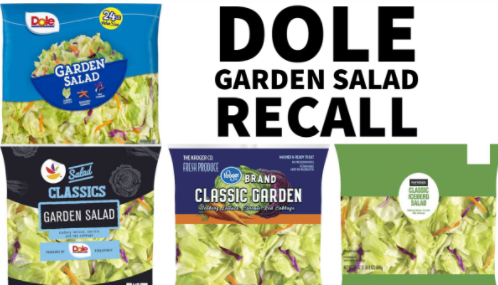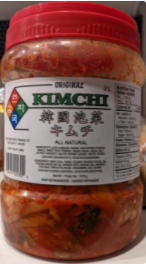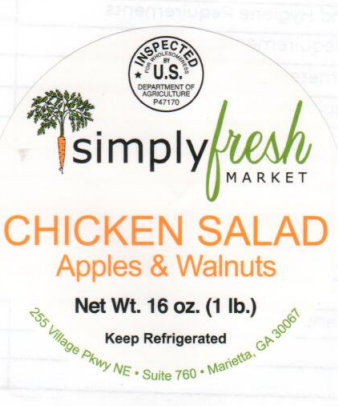According to the CDC, as of February 1, 2022, 17 people infected with the outbreak strain of Listeria monocytogenes have been reported from 13 states (IA, ID, MD, MI, MN, NC, NV, OH, OR, PA, TX, UT, and WI). There were 17 illnesses, 13 hospitalizations, and two deaths associated with this outbreak. Illnesses started from August 16, 2014, to December 30, 2021. CDC investigated outbreaks in 2019 and 2020 but could not gather enough data to identify the source in the past. CDC reopened the investigation in November 2021 after reports of new illnesses. On December 22, 2021, Dole voluntarily recalled all products and brands from their Bessemer City, NC, and Yuma, AZ facilities. On January 7, 2022, Dole issued a voluntary recall of additional products after Dole detected the presence of Listeria monocytogenes on equipment used in harvesting the raw iceberg lettuce also used in finished products processed in the Dole Springfield, OH, and Soledad, CA, facilities. Results from FDA’s WGS analysis showed that the strain of Listeria monocytogenes found on the harvesting equipment matches the strain causing illnesses in this outbreak. In addition to this outbreak of listeriosis linked to packaged salads produced by Dole, FDA and CDC are currently investigating a separate Listeria outbreak linked to packaged salads produced by Fresh. Express. All recalled products are now past their “Best if Used By” dates of November 30, 2021, to January 9, 2022. @ https://www.fda.gov/food/outbreaks-foodborne-illness/outbreak-investigation-listeria-monocytogenes-dole-packaged-salad-december-2021?utm_medium=email&utm_source=govdelivery
ruth
Do not eat, sell, or serve recalled Dole packaged salads; FDA investigation ongoing
ruth
A publication entitled Escherichia coli O103 outbreak associated with minced celery among hospitalized individuals in Victoria, British Columbia, 2021 (CCDR Volume 48-1, January 2022: COVID-19 Mortality and Social Inequalities, Courtney Smith, Allison Griffiths, Sandra Allison, Dee Hoyano, Linda Hoang) summarized the April 2021 outbreak associated with E. coli O103 (STEC). Six confirmed cases of E. coli O103 were identified by WGS. All confirmed cases were inpatients or outpatients at two hospitals and were exposed to raw minced celery within prepared sandwiches provided by hospital food services. Raw vegetables, such as celery, can be a source of STEC and present a risk to vulnerable populations. Mincing during the processing of raw vegetables and temperature abuse before consumption may provide additional layers of risk. This outbreak resulted in several recommendations to reduce the risk of minced celery served in hospitals, including more frequent testing at the processor, a review of the chlorination and mincing process, and hospital food services practices to mitigate temperature abuse. @ https://www.canada.ca/en/public-health/services/reports-publications/canada-communicable-disease-report-ccdr/monthly-issue/2022-48/issue-1-january-2022/outbreak-escherichia-coli-0103-hospitalized-people-british-columbia.html
Describes an outbreak of non-O157 E. coli associated with celery and issues of food safety for the high-risk populations and assesses the hospital food services practices to mitigate further outbreaks
ruth
The CFI reported that T-Brothers Food & Trading Ltd. recalled Hankook (Korean characters only) brand Original Kimchi from the marketplace due to possible E. coli O157:H7 contamination. The recalled product has been sold in British Columbia, Alberta, Saskatchewan, and Manitoba. This recall was triggered by findings by the CFIA during its investigation into a foodborne illness outbreak. There have been reported illnesses associated with the consumption of this product. @ https://recalls-rappels.canada.ca/en/alert-recall/hankook-korean-characters-only-brand-original-kimchi-recalled-due-e-coli-o157h7?utm_source=r_listserv
ruth
Jan. 28, 2022 – The USDA and FSIS issued a public health alert due to concerns that ready-to-eat (RTE) chicken salad products produced by Simply Fresh Market (Marietta, GA) may be contaminated with Listeria monocytogenes. A recall was not requested because the known affected product is no longer available in commerce for consumers to purchase. The RTE chicken salads with apples and walnuts items were produced on Jan. 17, 2022. These items were shipped to three local markets in Atlanta, GA. The problem was discovered by the company product sampling that showed positive Listeria monocytogenes results. No illnesses were reported. @ https://www.fsis.usda.gov/recalls-alerts/fsis-issues-public-health-alert-ready-eat-chicken-salad-products-due-possible




